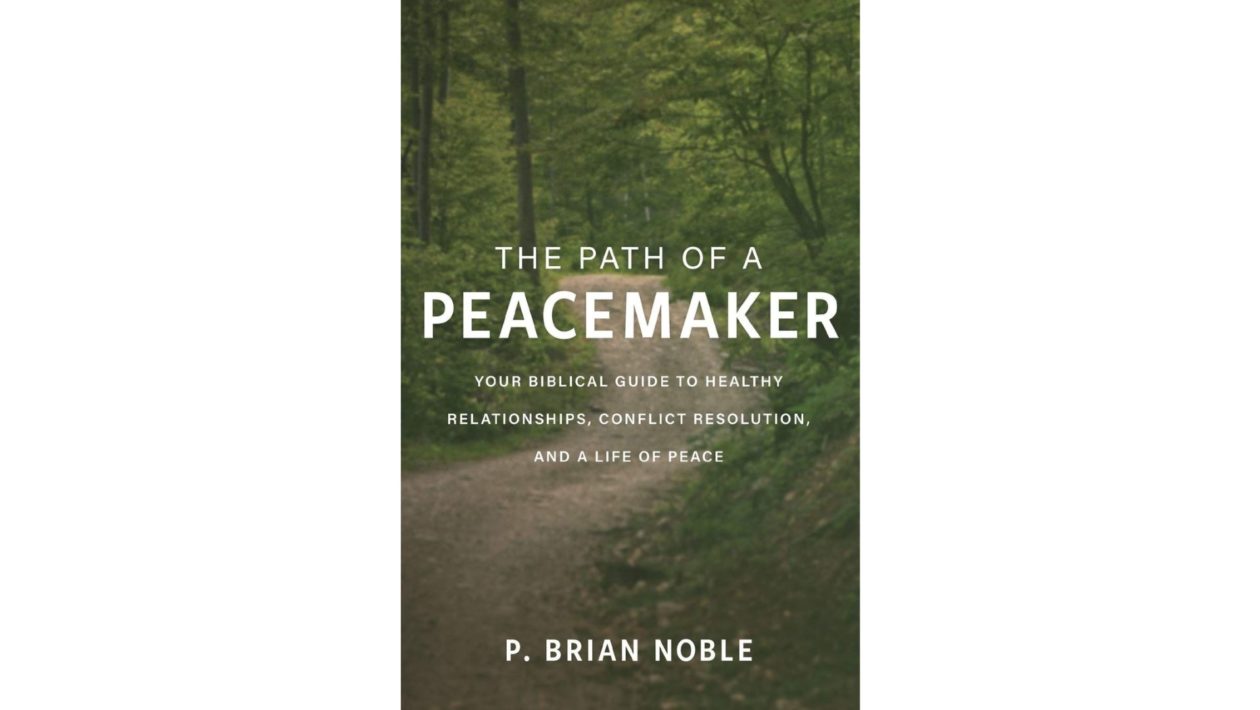By Brian Noble
Grand Rapids, MI: Baker Books (2019)
234 pages
Reviewed by TORI HENTON
Author Brian Noble addresses the challenge of conflict management in his book Path of a Peacemaker. His methods are rooted in Scripture and offer simple and attainable solutions to resolving conflict in churches, marriages, and other day-to-day relationships. The book is filled with real-life stories and personal examples revealing how the power of using Scriptural methods can heal wounded hearts and create lasting resolutions. The book is divided into five sections: tension, story, ascend, reflect, connect, and then a conclusion to reveal his methods.
Noble opens by sharing his own personal story of growing up in a home full of tension. He claims that tension is often looked at as a negative, but we cannot avoid tension and therefore we must explore a positive side that can move us into conflict resolution instead of division. His tension theory is based on Proverbs 27:17, “As iron sharpens iron, so one person sharpens another” (NIV).
He believes that part of developing resolution from tense conflicts is to take the time to listen to one another’s stories. Hearing a person’s story is the first phase he has developed in resolving conflicts peacefully. He writes, “Because understanding one another’s stories helps us understand other people’s perspectives and our own perspective.
And perspective helps us be more compassionate and merciful” (p. 47). A changed perspective causes new results and better context in which to resolve our conflicts.
This then leads us into Noble’s second stage of resolution, ascension. Ascension draws us upward together toward God, where our hearts are softened, and perspectives become solidified through prayer and the reading of Scripture together.
Next, we can reflect by allowing God to teach us His ways (Psalm 139). We do not tend to see ourselves objectively, so we need the power of the Holy Spirit to search our hearts and reveal to us our own part in the conflict before continuing to move forward in resolve.
Lastly, Noble’s model teaches to connect by practicing humility and listening to the other party. Only through the practice of death to self and resurrecting in a new spirit can we attain a humble heart that moves us forward into peaceful living. “How do we do this? Above all by listening, by serving the other person well. When we connect with the other person, our goal is not to change them. We can’t change them. Our goal is to reflect the Gospel” (p. 184).
Noble concludes by revisiting his methods, including a reminder to readers to “be doers of the word, and not hearers only” (Jas. 1:22, NKJV), and that “peace is possible, if we first connect with the Peacemaker Himself” (p. 234).
Noble presents a book that is very down-to-earth in its atmosphere and style of writing. His method can be easily adopted by any reader and is truly founded in biblical principles. His writing style is approachable and relaxed, giving any follower of Christ a Scripture-based method of glorifying God through conflict and receiving God’s peace, whether there is resolution or not. I enjoyed the personal stories that were shared throughout the book from the authors’ life and from others. The stories aided in bringing Noble’s peacemaker principles to life. His use of Scripture to support his theory was sound and revealed the heart and truth of Christ.
My only challenge while reading was the lack of depth within the second section of the book, the story segment. The concept of considering other’s stories as well as our own is solid, but the supportive information was lacking. His language and writing were very general and lacked statistical evidences for his theory of how our stories develop us into who we are. I felt that the concepts, though true, were summarized and could have been more impactful to the reader if research had been provided.
My experience with the book has been very positive. I have been able to glean and put into practice in my own conflicts the method of story, ascend, reflect, and connect. I believe these will be useful tools to share within my community and congregation to help them manage their own personal conflicts. With the prevalence of tensions going on today within our church communities, something that can be easily applied to any situation and is biblically sound is essential for any ministerial toolbox. Noble has provided just that.
I wholeheartedly recommend this book for Christian readers in any stage in their spiritual journey. Jesus calls us to be peacemakers, to consider the person beyond the problem, to humble ourselves, and to ask the Spirit to search our hearts and create resolution whenever possible. If someone is looking for a way to successfully manage tense encounters, this book is a fantastic starting place and has potential to assist in transforming relationships and building unity within our churches.
Tori Henton has a background in secondary religious education and works in youth and family lay ministries at College View Seventh-day Adventist Church in Lincoln, Nebraska.

